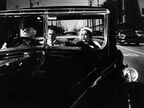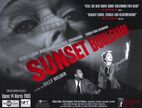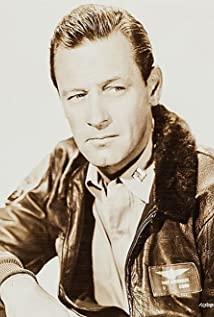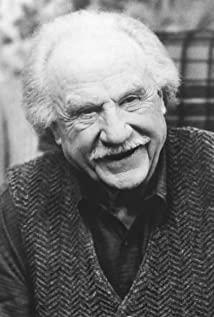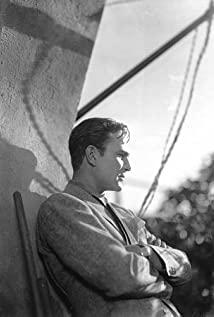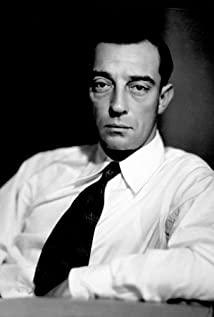"Sunset Boulevard" breaks Hollywood's identity as the "gateway of public imagination" in multiple senses. This comes from its reference and presentation of the entire Hollywood industry. In the history of Hollywood movies, films showing the inner world of Hollywood are not uncommon, but they eventually become another way to write the myth of Hollywood utopia. But the reference of "Sunset Boulevard" is thorough and comprehensive. It uses the story of an outdated actress shooting and killing an expired small screenwriter as its shell, and it narrates a love story with contradictions and unpredictable, just like the Hollywood world in 1950.
This kind of reference is first of all a reference to the Hollywood studio system. As the core of the studio system, the power of producers and production managers controls everything in Hollywood movies. Columbia company leader Harry Cohen classified directors, screenwriters, and actors into the ranks of "little people", and in the logic of movies in other countries, these people are precisely the core of the film. Producers and production managers think about all aspects of the film, including the script, with economic logic. And in Hollywood, it is impossible for a screenwriter to complete the task of writing a film independently. So Jerry, the small screenwriter of "Sunset Boulevard", appeared in his personal writing, and he was doomed to fail. And the enthusiastic script collaboration between Jerry and SKYFOR can only end in tragedy. This is caused by the Hollywood production system. In the film, Jerry describes the plot to the producer, which truly and profoundly shows how the studio system works. The producers arbitrarily tampered with the plot of the film in a way that they thought would be profitable, and the screenwriter had no choice but to laugh or cry. This is a core part of Hollywood business rules.
The star system is the most important object of reference in the film. As an outdated movie star, Norma Dessman was immersed in her own imaginative world and could not extricate herself until she collapsed. This film is like a sequel to "The Birth of a Star". "The Birth of a Star" clearly shows how a star is shaped, and no longer meets the studio's requirements. Essentially, actors who no longer have box office appeal will be ruthlessly abandoned. "In the film industry, there are not many screen heroes who can stand up all year round. As health goes away, youth is gone, wealth disappears, youth is dying, and all people are in the past, old dreams of yesterday." This is what a star has to pay. cost. Norma Dessman is a victim of the mature star system. "Sunset Boulevard" presents the cruelty of the star system, which makes the human nature mutate and eventually leads to self-destruction. It is impossible to start from the imaginary world before dying. This love became the weight of the last fight in his life. But like the possibility of her comeback, this love is doomed to despair. This love dilemma is like the dilemma that Hollywood faced the "Paramount Act" in 1950.
In the traditional sense, the passage of the Paramount Act directly led to the collapse of the studio system and the beginning of the run-down of classic Hollywood. Big companies had to reduce the number of films shot each year, increase the cost of individual films, and carried out large-scale layoffs. Ji Rui is just like a victim of this change. Although Norma Dessman, the representative of classic Hollywood, is still dilapidated, the young screenwriters Jerry and Skaver still have no new hope. Does this mean serious difficulties in the Hollywood world? Large companies that have left the screening link lack feedback on genre information, and the relocation of the middle class and the post-war "baby boom" have severely affected film revenue. In 1950, American film revenue only accounted for 12.3% of the entertainment industry. In the past, this figure was as high as about 25%. Here, the setting of the screenwriter and actor, as well as the outdated director Mike, directly demonstrates the plight of the entire Hollywood film industry with his personal plight.
However, in Billy Wilder's usual way, the film starts with a love story with a genre shell. As an inverted Cinderella text, "Sunset Boulevard" does not give the audience any traditional imagination about love genres in the main love story. The love relationship between the male and female protagonists is based on mutual use. The script of the two people's cooperation is more meaningful to them than love to them. Norma's rage when Jerry left was, in the final analysis, because of her complete despair in her career. In this love, it is full of hatred, jealousy and revenge. It completely violates Professor Hao Jian's simple summary of love genre films, "Love is great and has to go through twists and turns". Hao Jian believes that in Hollywood love genres, as a collective carnival ritual narrative, love is always positive and transcends everything. Among them, it will take the opportunity to conform to modern myths that carry ideological intentions, such as the elimination of class nature. In this sense, "Sunset Boulevard" is more like an "anti-romance film." In the film, the spark of love between Ji Rui and Sikaif was also extinguished by Norma. This love is doomed to despair. Bringing the external form of film noir into a romantic film seriously subverts the traditional appearance of romantic films, describing the world of love as a black world of intrigue, and Billy Wilder uses his intention to dispel genre films. Expressed in the most violent way, I wonder if this way is not mature enough for his later works.
The ending of the film is a violent dismantling of the traditional happy ending of the romance genre. The widespread use of Hollywood movies and the happy ending should first be seen as a set of mature commercial aesthetic appeals, which guarantee the interactive relationship between the film and the audience, and meet the audience's movie-watching expectations and emotional needs. And its ideological operation will be discussed in specific paragraphs later. We can regard the ending as the key to whether the Hollywood utopian myth can be successfully communicated and constructed. "Sunset Boulevard" dismantled the traditional romance narrative, and then dismantled the usual happy ending. The insurmountability of love becomes a real visible myth, but the mythology originally realized through the narrative of romantic films has been broken.
View more about Sunset Blvd. reviews



